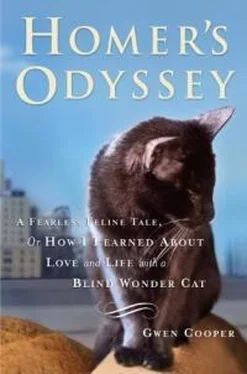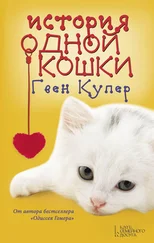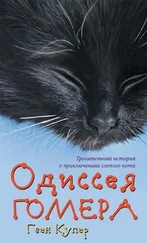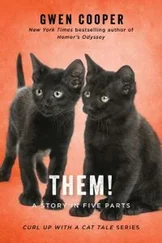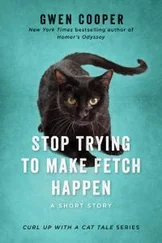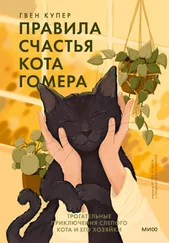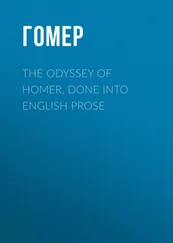And it was exactly this kind of hazy, immature thinking, I told myself somewhat viciously as I slid into the parking lot outside my vet’s office, this heedless disregard for future consequences, that had landed me exactly where I currently was in life—broke and alone after years of carefully constructing what I’d thought was an unshakable future.
I realize now that I was trying to manufacture a sense of anger. It was far easier to convince myself I was angry and put-upon than it was to admit I was terrified.
It was a ferociously muggy, late-August day. Silvery waves of heat shimmered and rose like evil genies from the pavement fronting the strip mall where my vet had her office. The receptionist greeted me warmly as I entered, summoning Patty, who popped her head out from a door behind the reception desk with a cheerful “Come on back!”
I followed her past rows of cages holding cats and dogs, which I’d noticed before but never paid much attention to. I’d always assumed they’d been left in the temporary care of my vet by owners who would eventually come to retrieve them. For the first time, I wondered how many of them were actually homeless, waiting to be looked over by people like me who might or might not end up adopting them.
We reached the last examination room at the end of a narrow, wood-paneled corridor, and Patty opened the door for me. On the exam table was a lidless plastic box (“So you can interact with him,” she explained). I walked over and peered in.
He’s so tiny was my first thought. Both of my cats had been almost this young when I’d taken them in, but I’d forgotten how absolutely tiny a four-week-old kitten is. He couldn’t have weighed more than a few ounces. He had curled himself up into a miniature sphere in the farthest corner of the box, a fuzzy soft-ball that would have fit easily into the palm of my hand. His fur was all black, and it had that static-electricity fluffiness that very small kittens have, as if their fur has actively rebelled against the notion of lying flat. Where his eyes had been were two tiny stitches, and around his neck was one of those plastic cones they put on pets to keep them from scratching stitches out.
“I sutured the lids shut,” Patty said. “So it won’t look like he has sockets or anything—it’ll kind of look like he has his eyes closed all the time.” She was right. Looking at the X-shaped stitches where his eyes would have been, I was reminded of childhood cartoons where the drunkenness or demise of a character was indicated by X’s drawn over his eyes.
“Hey there,” I said softly. I scrunched down a bit, so my voice would come from the kitten’s level and not sound too booming or scary. “Hey, little guy.”
The black fuzzball in the corner of the box uncurled itself and stood up hesitantly. I tentatively reached a hand—a hand that suddenly seemed monstrous in size—into the box and lightly scratched the bottom of it. The kitten walked slowly toward the sound, his head bobbing uncertainly under the weight of the plastic cone. His nose bumped against one of my fingers, and he sniffed it curiously.
I glanced up at Patty, who said, “You can pick him up if you want to.”
I lifted him carefully, cradling him just below my chest with one hand supporting his bottom and the other around his chest and front legs. “Hi, little boy,” I whispered.
At the sound of my voice, he turned himself around and reached up to my left shoulder with his front paws; they were so small, they sank between the cables of the light cotton sweater I was wearing. He struggled a bit, and I could tell he was trying to hoist his full weight onto my shoulder. But his claws, such as they were, were too tiny to get a good grip. Giving up, he twisted again and brought his face as close to where my jaw met my neck as the plastic cone would allow. He tried to rub his face against mine, although all I felt was plastic against my cheek. Then he started to purr. The cone funneled the sound until it was so loud, he sounded like an improbably small motor.
I had expected that, having no eyes, he would be incapable of conveying much expression—and it occurred to me that this, perhaps, was the secret fear of the people who’d refused to adopt him. A pet whose face couldn’t register love, couldn’t reflect emotion, might always feel like a stranger in your home.
As I held him, though, I realized that it isn’t the eyes that tell you how someone is feeling or what they’re thinking. It’s the muscles around the eyes, which pull the corners up or push them down, crinkle them at the edges to convey amusement or narrow them into slits indicating anger.
This kitten didn’t have his eyes anymore, but the muscles around them had been left intact. And I could tell, from the shape the muscles were taking, that if he’d had eyelids they would have been half closed in an expression eminently familiar to me from my other two cats. It was an expression of utter contentment. The ease with which he slipped into it suggested that, despite everything he’d already been through—despite every reason he’d had to expect the opposite—in the depths of his kitten-y little soul, he’d always known there would be a place where he could feel completely warm and secure.
And now, at last, he’d found it.
“Oh, for God’s sake.” I put him gently back into his box, then rooted around in my purse for a tissue. “Wrap him up, I’m taking him home.”
• • •
PATTY WAS INSISTENT that the kitten remain with her a little while longer. She wanted to keep an eye on his stitches, concerned about possible infections. And she also hoped he might gain some weight before being subjected to the tender mercies of solid food and two full-grown cats. “You can take him home in a few days,” she promised.
I was finally getting my Chairman Meow, but somehow a prefab name didn’t seem right anymore. “You should call him Socket,” Melissa suggested.
“That’s awful!” I exclaimed. “His name is not Socket!”
She shrugged good-naturedly. “He’ll always be Socket to me.” I hadn’t had much difficulty in naming Scarlett or Vashti. Scarlett had come to me named already; she’d been one of a litter of stray kittens found by my mechanic, who’d named her Scarlett because she’d been so dehydrated those first few days that she kept fainting. I named Vashti for the biblical Persian queen who’d refused to dance naked at a feast for her husband—the king of Persia—and a group of his drunken buddies. She was banished from the kingdom as a penalty for her refusal, an early feminist martyr as far as I was concerned. That my Vashti had grown from a sad, half-bald bag of kitten bones into an exotic longhaired stunner, who looked a bit like a Persian cat, had been a happy coincidence. I didn’t want to stick this new kitten with something cutesy or obvious (“Ray” and “Stevie” had already been suggested by well-meaning friends as exactly the right name for a blind black cat), but I also didn’t want to hang anything too solemn or portentous on him. He would always be blind, it would always be an inescapable fact of his life, but I knew—even way back in the beginning—that I didn’t want his whole life to be defined by his blindness alone.
I visited the kitten at the vet’s office often over the next few days. His short life had already been more bewildering than anybody could imagine—I wanted there to be something familiar and reassuring when he finally came home with me, even if it was only my smell and the sound of my voice.
But I was also still nervous in more ways than I cared to admit. He was mine now—there was no going back from it—but I wanted to see for myself how he got around, how he encountered the world around him and learned to make his way through it.
Читать дальше
